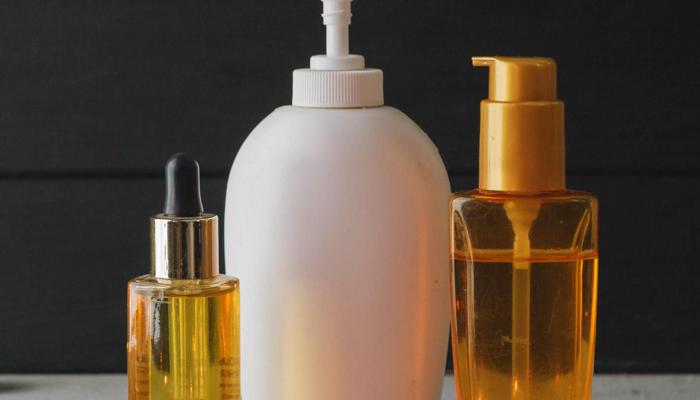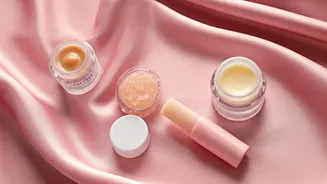Discover the secrets to a successful skincare routine in our guide! Unveil 10 essential tips for glowing skin
In today's world, everyone wants healthy and glowing skin. But achieving that "chakachak" look
isn't just about luck. You need a proper skincare routine, followed with discipline. Think of it like watering your plants – regular care is key for them to flourish!
So, let's dive into ten essential tips to help you create a skincare regimen that actually works for you, even with our crazy Indian weather and lifestyles.
Know Your Skin Type, Boss!
Before you start slathering on creams and potions, figure out your skin type, ya. Is it dry like a desert, oily like a samosa fresh out of the fryer, a combination of both, or sensitive like a delicate flower? Knowing this is skin care 101!
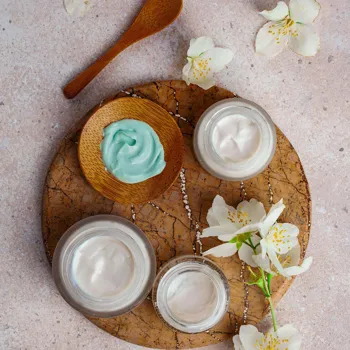
A simple test: Wash your face with a mild cleanser and leave it bare for an hour. If it feels tight, you likely have dry skin. If it's shiny all over, oily skin is your type. Combination skin will be oily in the T-zone (forehead, nose, chin) and dry elsewhere.
Sensitive skin will react to almost everything. If your skin gets irritable or you have allergies, then you should only use a very few products and ingredients on your skin. Knowing this allows you to address their specific concerns and keep your skin healthier.
Understanding your skin type is absolutely fundamental. If you use products designed for oily skin when you have dry skin, it's going to be a disaster! You'll end up with flaky, irritated skin crying out for hydration.
Similarly, piling heavy creams onto oily skin will lead to clogged pores and breakouts. Look for products that are specifically formulated for your skin type. For instance, oily skin types can benefit from the use of a lightweight, gel consistency moisturizer.
Dry skin can benefit from thicker, cream bases moisturizer. Choose products that are "non-comedogenic," meaning they won't clog your pores. Once you know your skin type, you can start building and maintaining a routine that works at keeping it hydrated.
If you are allergic to any of these ingredients, you should seek medical help from a dermatologist.
Understanding your skin is more than just knowing about its oil levels. It is important to understand how your skin reacts to different conditions and environments.
If you live in a very humid environment, you should use skin care and cosmetics that have the ability to absorb sweat and dry fast. If you live in a very dry or cold environment, you should hydrate the skin and use a product that locks in moisture.
Moreover, one should also know about the type of products and brands to use. If your skill is sensitive, you should make sure you are not using brands that use high amounts of acid. If your skill can tolerate acid, then you can use products that have a higher amount of acid in them.
The type of ingredients and pH level can affect all our skins in different ways.
Cleansing is Key, Yaar!
Imagine skipping your bath after a long day of dusty Delhi heat! Your skin feels the same way. Cleansing is crucial to remove dirt, oil, pollution, and makeup that accumulate throughout the day. But, don't overdo it!
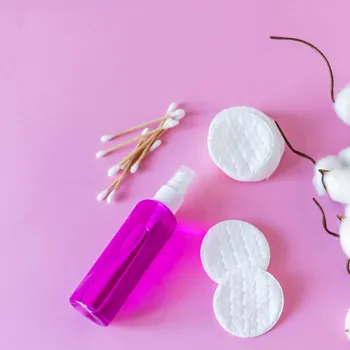
Washing your face too often can strip your skin of its natural oils, leading to dryness and irritation. Twice a day is generally sufficient – once in the morning and once at night. Choose a gentle cleanser that suits your skin type.
Those harsh soaps will just damage your skin, and leave it red and irritated. Look for cleansers that are sulfate-free and pH-balanced. Use lukewarm water, not hot water, as it will dry the skin.
When cleansing, always use a soft towel and avoid harsh scrubbing. Pat your face dry, don't rub!
Rubbing can irritate the skin and cause inflammation. Also, remember to cleanse your neck as well, because it is very similar to the skin we have on our faces. We want to avoid premature aging and fine lines, so cleansing on our neck is also crucial. At night, double cleanse if you wear makeup.
A first cleanse with an oil-based cleanser will remove makeup and sunscreen, followed by a second cleanse with your regular cleanser to remove any remaining residue. Always make sure you are using clean and hygienic towels and applicators, so you don't introduce new bacteria to your skin.
Cleansing is more than just a step, it transforms your skin from irritated to fresh. After you find the proper cleansing product, you may also want to find a toner. Toners can help balance the pH of your skin after cleansing.
They can also help remove any remaining traces of dirt, oil, or makeup that the cleanser might have missed. Look for toners that are alcohol-free to avoid drying out your skin. Some toners also contain beneficial ingredients like antioxidants or hydrating agents.
If you use an active cleanser, make sure you are using a gentle toner. If you are using a gentle cleanser, you can test and research active toners. Moreover, you should never skip this step.
Sunscreen is Your Best Friend, Ever!
Whether it's sunny or cloudy, sunscreen is a must, especially in India where the sun is always blazing! Think of sunscreen as your skin's shield against harmful UV rays. These rays can cause premature aging, wrinkles, dark spots, and even skin cancer.

Choose a broad-spectrum sunscreen with an SPF of 30 or higher. "Broad-spectrum" means it protects against both UVA and UVB rays. Apply it liberally to all exposed areas of your skin 15-20 minutes before sun exposure. Don't forget your ears, neck, and the backs of your hands!
Carry your sunscreen with you, and reapply every two hours, especially if you're sweating or swimming.
Sunscreen is not just for sunny days at the beach. The sun's rays can penetrate clouds, so you need to wear sunscreen even on overcast days.
Make it a part of your daily routine, just like brushing your teeth. Many moisturizers and foundations now contain SPF, but these often don't provide enough protection on their own. Opt for a dedicated sunscreen for maximum benefit.
If you find that your sunscreen feels heavy or greasy, try a lightweight, gel-based formula. There are also tinted sunscreens that can double as a light foundation. Reapply when you can - after sweating or spending a substantial amount of time outdoors.
Choosing the right sunscreen for your skin type is also essential. If you have oily skin, look for non-comedogenic, oil-free sunscreen. For dry skin, opt for hydrating sunscreens with moisturizing ingredients like hyaluronic acid or ceramides.
If you have sensitive skin, choose mineral sunscreens with zinc oxide or titanium dioxide, as they are less likely to cause irritation. Mineral sunscreens can sometimes leave a white cast on the skin, but there are now many formulations that are designed to minimize this effect.
Always check the expiration date on your sunscreen and replace it if it's expired.
Hydrate, Hydrate, Hydrate! Inside and Out
Our skin needs water to look plump and healthy. Dehydration can lead to dryness, dullness, and even wrinkles. Drink plenty of water throughout the day to keep your skin hydrated from the inside out. Aim for at least 8 glasses of water a day.
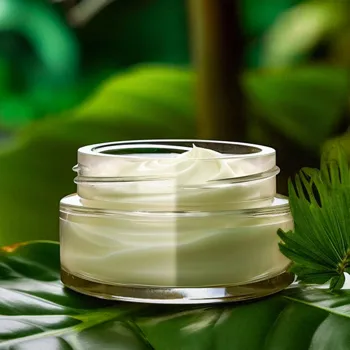
Use hydrating skincare products like hyaluronic acid serums and moisturizers to lock in moisture. Think of it as giving your skin a tall glass of water!
Choosing the right moisturizer for your skin type is crucial. If you have oily skin, look for a lightweight, gel-based moisturizer.
For dry skin, opt for a richer, cream-based moisturizer. Combination skin might benefit from using a lighter moisturizer in the morning and a heavier one at night. Look for ingredients like ceramides, glycerin, and hyaluronic acid in your moisturizer, as they help to attract and retain moisture.
Once you have identified your needs, the moisturizer should be applied to damp skin. Doing this helps to trap the moisture and will keep your skin hydrated.
Don't forget about other factors that can affect your skin's hydration levels: climate, diet, and lifestyle.
Dry air can suck the moisture out of your skin, so use a humidifier in your home or office. Avoid excessive caffeine and alcohol, as they can dehydrate you. Eat a balanced diet rich in fruits, vegetables, and healthy fats to nourish your skin from the inside out.
Remember, hydrated skin is happy skin!
Exfoliate Regularly, But Gently
Exfoliation removes dead skin cells, revealing brighter, smoother skin underneath. But be careful not to overdo it! Over-exfoliating can damage your skin's protective barrier, leading to irritation and sensitivity. Aim to exfoliate once or twice a week, depending on your skin type.
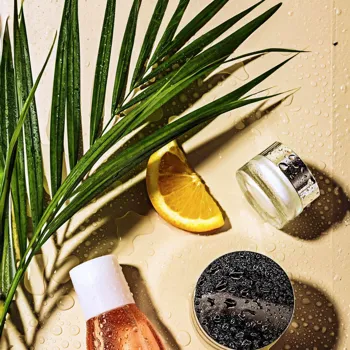
There are two main types of exfoliants: physical and chemical. Physical exfoliants include scrubs with small particles, like sugar or beads. Chemical exfoliants use acids like AHAs (alpha-hydroxy acids) or BHAs (beta-hydroxy acids) to dissolve dead skin cells.
Always follow the instructions on the product label carefully and be gentle with your skin.
Physical exfoliants can be more abrasive, so be sure to massage them gently into your skin in circular motions.
Avoid using physical exfoliants if you have sensitive skin or active breakouts, as they can cause inflammation or spread bacteria. Chemical exfoliants are generally gentler on the skin, but they can make your skin more sensitive to the sun, so be sure to wear sunscreen.
Start with a low concentration of AHA or BHA and gradually increase it as your skin gets used to it. Always do a patch test on a small area of your skin before applying any new exfoliant to your entire face.
Consider alternative methods of exfoliation.
An enzyme peel is also a great way to gently remove dead skin. Exfoliating helps your skin absorb other nutrients better, such as serums or moisturizer. So, always hydrate after exfoliating. You want to focus on supporting your skin.
Serums: The Power of Small Bottles
Serums are concentrated formulas that deliver specific ingredients to your skin. They can address a variety of concerns, such as wrinkles, dark spots, acne, and dryness. There's a serum for pretty much everything these days, so find the ones that work for your skin the best.
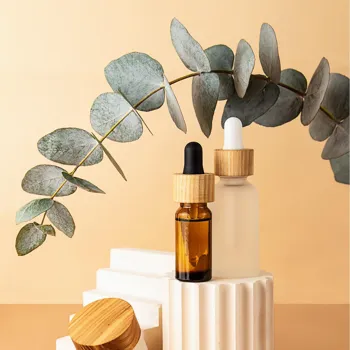
If you wish to decrease the fine lines and wrinkles, you can purchase serums that contain retinol, or if you want to keep your skin hydrated, you can purchase serums that contain hyaluronic acid.
When choosing a serum, consider your skin type and concerns.
For dry skin, look for hydrating serums with hyaluronic acid or ceramides. For oily skin, opt for lightweight serums with niacinamide or salicylic acid. For aging skin, look for serums with antioxidants like vitamin C or retinol. Apply your serum after cleansing and toning, but before moisturizing.
A little goes a long way, so just use a few drops. Gently pat the serum into your skin and allow it to absorb completely before applying your moisturizer. As you research products and ingredients, you may also find a method that works best for you.
Many serums come in a variety of forms.
The most popular one that is commonly used is Vitamin C. It helps with brightening your skin and fighting signs of aging. Remember always to buy it in a dark bottle container, so that the solution does not diminish in the light and damage. Another serum that you can use is Niacinamide.
This is also a skin brightening solution, especially if you have dark marks on your skin. No matter what serum you choose, always do a patch test to make sure it is safe for your skin.
AI Generated Content. Glance/InMobi shall have no liability for the content